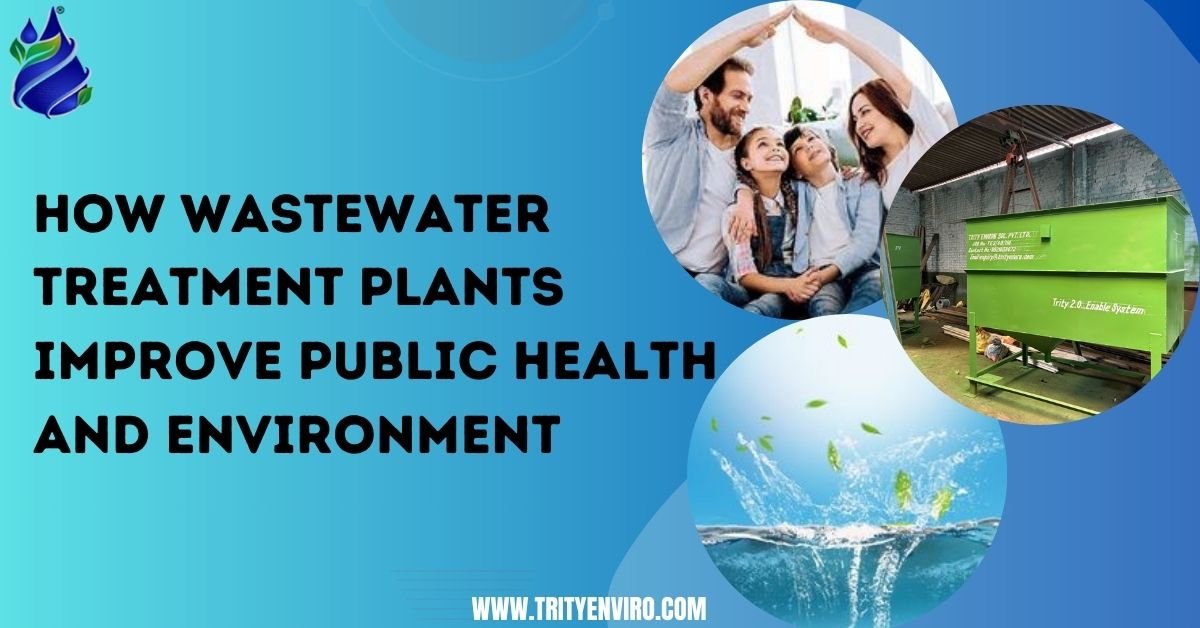
Introduction: Learning about Wastewater Treatment and Its Importance
It is essential to the safeguard public health and protection of the environment to treat wastewater. The water removal takes place to filter out dangerous elements in the water used in the homes, business, or agriculture. Wastewater can be hazardous to ecosystems, human health, and natural water sources if it is not treated. Wastewater Treatment Plant distributors are an important component in making sure wastewater is treated and safe to be used or dumped. They stop pollutants from polluting rivers, lakes, and oceans, to keep communities from using water that is less clean. Wastewater treatment draws significance worldwide as populations grow and as clean drinking water becomes scarcer. Untreated wastewater is an important threat to public health and the environment.
These bacteria, viruses, parasites, and toxic chemicals that can cause diseases such as cholera, typhoid, and dysentery. This contaminates drinking water sources and harms aquatic ecosystems when it is released into natural water bodies. Possibly agricultural fields are contaminated with polluted water and introduced into the food supply, harm, heavy metals, and pathogens. In addition, wastewater untreated resulting in oxygen depletion in water bodies resulting in dead zones without aquatic life. Such pollution disrupts ecosystems, trashes biodiversity, and facilitates ecological degradation. Untreated wastewater poses health and environmental threats and clearly there is a need for viable treatment solutions.
Steps in Wastewater Treatment: Ensuring Cleaner Water
Wastewater treatment is a multi-step process that removes impurities from waste water, making water safe and clean. The first step, preliminary treatment, takes out large debris, plastics, rocks, and grease before they leave the water. It helps prevent damage to equipment down the line. The primary treatment of separating solids from liquids is the next phase. The second treatment stage uses biological processes, including activated sludge or trickling filters, to reduce organic matter. In addition to which, these methods involve advanced treatment of remaining pathogens along with dangerous chemicals through filtration, chemical neutralization, and ultraviolet disinfection. Wastewater Treatment Plant for industries plays a crucial role in ensuring effective treatment tailored to industrial needs. The treated water is finally discharged into natural water bodies, or it is reused for irrigation and industrial purposes. Protecting public health and the environment requires each step of the treatment process.
The Proper Wastewater Treatment Health Benefits
1. An important part of building and maintaining a healthy clean water society is proper wastewater treatment to protect communities from disease and toxic levels of exposure. Treatment plants remove harmful pathogens to prevent spread of diseases, such as cholera, hepatitis and gastrointestinal infections. It greatly cuts down health risks, especially where clean water is out of reach.
2. Wastewater treatment also removes hazardous chemicals such as lead, mercury and pesticides that cause long term health problems if consumed. Also the treated wastewater is a big help for the sanitation, the water used for cleaning, bathing and irrigation is safe. And they help make communities healthier, lower health care costs, and improve overall quality of life. In a world of rapid urbanization, it is necessary to implement successful wastewater management to prevent public health.
3. Wastewater treatment plants of an advanced stage ensure that they protect environment from pollution and save natural resources. They remove these harmful nutrient, nitrogen and phosphorus, which cause algae blooms in water bodies. Armed with his nets, Charles Siebert fishes near a strip mall in Tampico, Illinois. There, the water in the pond has been respirable, that is, it has contained enough oxygen so that fish and other creatures can live, but the death of the fish in nearby ponds indicates that the water has recently undergone an algae bloom, which leaves less oxygen for those once-living inhabitants.
4. Treatment plants take action to avoid this, preventing the balance of aquatic ecosystems. And they reuse treated wastewater for industrial, irrigation and recreation. Also, treatment plants use of energy efficient technologies as well as recover biogas from organic waste thereby reducing greenhouse gas emissions. Global action is weighing on reducing climate change and accelerating sustainable development. Modern wastewater treatment plants offer many environmental advantages that go far beyond the purification of water.
Wastewater Treatment Technology Modern Innovations
Wastewater treatment technology is on the rise of using innovation. Other membrane filtration techniques, such as reverse osmosis and nanofiltration, enhance the removal of microscopic particles and contaminants. Chemical-free, ultraviolet disinfection eliminates pathogens and gives you safer water without using harmful substances. Artificial intelligence and machine learning across smart technologies enable smart technologies to predict maintenance needs and increase energy efficiency in plants.
Wastewater Treatment Plant in India is adopting these advancements to address diverse challenges and improve sustainability. Organic waste treatment plants traditionally result in the emission of carbon, however, biogas recovery systems convert organic waste into energy and lower the carbon footprint. Construction of wetlands and green infrastructure allows for the integration of ecological processes into treatment systems, further minimizing environmental impact compared to conventional treatment systems. This advancement offers treatment plants the ability to tackle new water challenges, as technology lends itself to new approaches, allowing innovation and sustainability
Conclusion: Wastewater management as the key to a Cleaner Future
1. Wastewater treatment is an essential investment toward constructing a cleaner and healthier future. Treatment plants keep diseases from spreading, preserve natural water sources, and sustainably use water. Wastewater management becomes more efficient, with that practice reducing costs and environmentally harmful effects because of the use of advanced technologies.
2. Wastewater Treatment Plant Manufacturers in India play a crucial role in developing innovative solutions to meet these challenges. Such governments, industries, and communities can make access to clean water available for future generations by prioritizing wastewater treatment. Both promote sustainable water practices and lowering waste, public awareness and education are just as important.
3. Everyone benefits from a good functioning wastewater treatment system for public health, preservation of our environment, and to support economic growth. Clean water and innovative wastewater solutions have the power to create a sustainable future, together.


